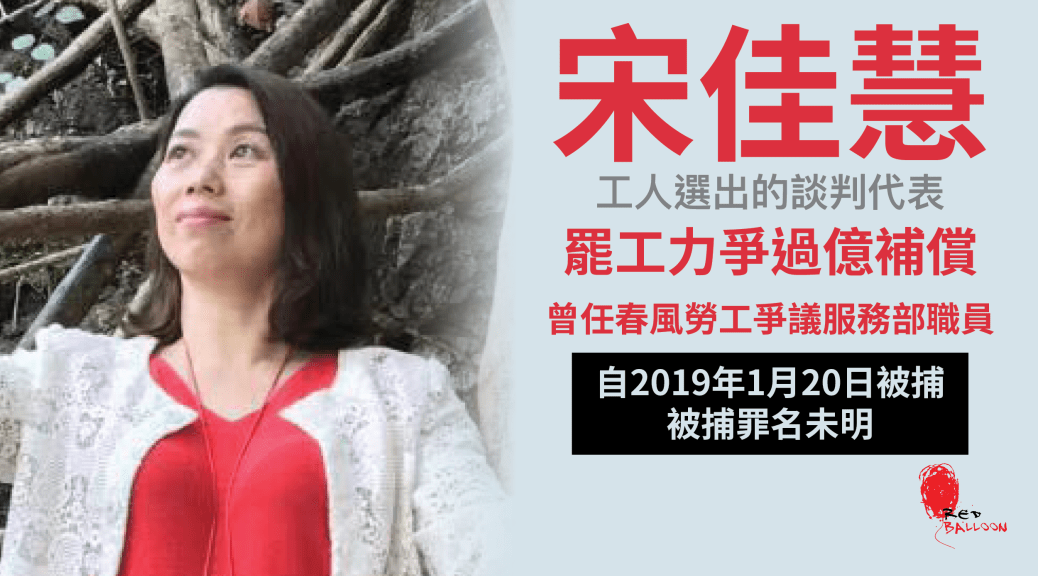Sun Yat Sen University Master’s graduate, Guangzhou NHK Spring Precision woman worker, democratically elected worker bargaining representation, and one of the initiators of the Jasic Worker Support Group. After being fired by her factory in retaliation for her activism, Mengyu learned of the Jasic workers’ struggle and took the lead in calling on supporters to head to Pingshan to support the Jasic workers, forming the Jasic Workers Support Group. Because of her active support work, she was abducted and disappeared on August 11th, 2018. The following are her own recollections, published before the beignning of the Jasic support campaign, during her own rights defense campaign with NHK Spring Precision.
I Have No Regrets--From SYSU Masters’ Student to Assembly Line Woman Worker
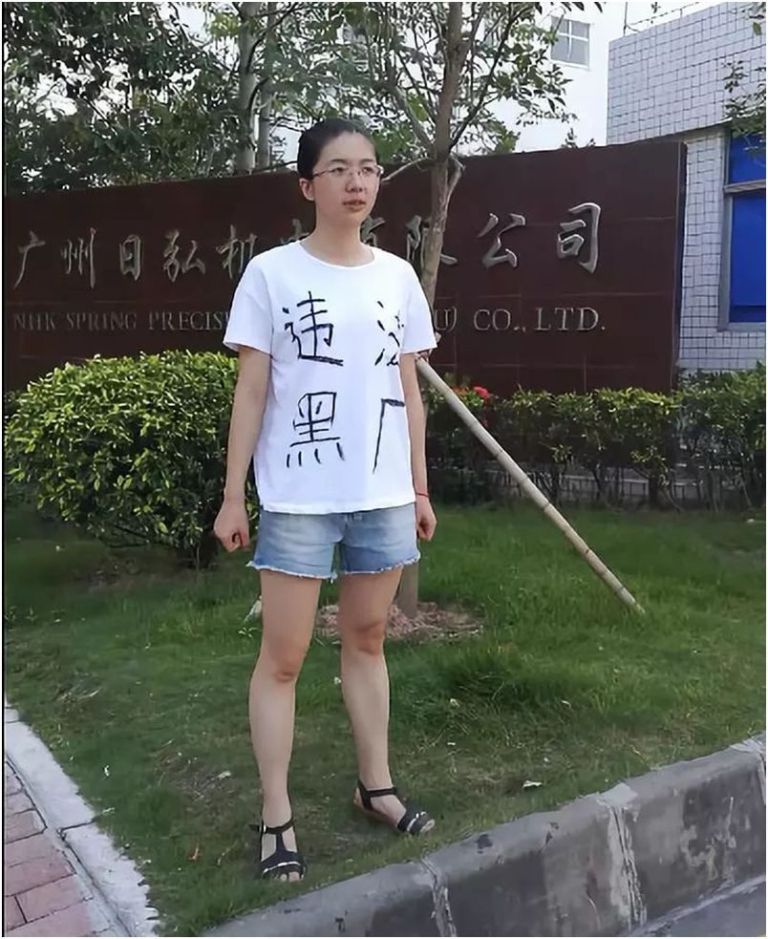
Mengyu stands outside NHK with a shirt reading “illegal factory”.
The industrial district grad student
In June 2015, I graduated from the Sun Yat-Sen University School of Mathematics and Computational Science. But unlike my peers, I didn’t choose a job in high-rise office buildings. I chose instead to enter the industrial districts and become a (blue collar) woman worker.
My choice wasn’t based on a sudden fancy or some fleeting interest, but was deeply grounded in my life experience, my experience and understanding of workers’ current situation, and my belief that this situation must change.
During my time studying at Sun-Yat Sen, a variety of seminars and talks gave me a window into understanding workers. I saw victims of occupational injuries, crippled under the turning wheel of economic development; and Foxconn workers free-falling from factory rooftops, their lives worth but a trifle; I learned about a type of occupational illness called silicosis, which put its victims through living hell, and also benzene poisoning, leukemia, noise-induced deafness…
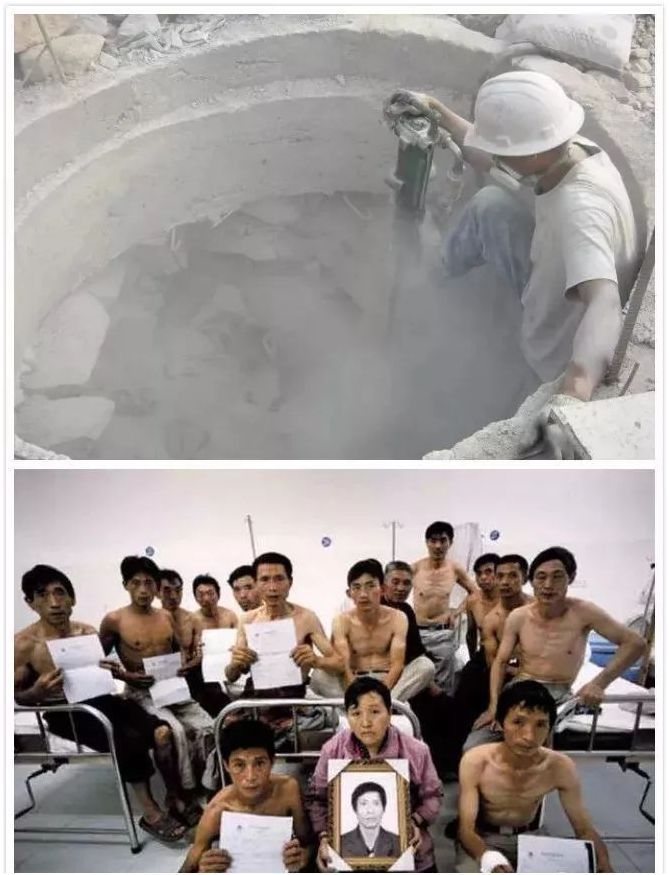
Silicosis workers kneel to wait for death
Workers work tirelessly in the cities, yet the city mercilessly crushes them.
Once I attended a talk by Peking University Professor Lu Huilin about the situation of migrant workers. During Q&A, one student asked: “Professor Lu, are university students like us beneficiaries of the system?”
Beneficiaries of the system?! Those words pained me deeply.
Lucky enough to be born in a middle class family, since childhood I have never had to worry about the basic necessities of life. With access to quality education, my future seemed bright. But was I rightfully entitled to all of that?
In that moment, I started to examine myself and that whole classroom full of students with boundless prospects. I started to reflect—reflect on the 40 thousand fingers broken every year in the Pearl River Delta, and on the 280 million migrant workers who devote their youthful lives to the cities yet are not allowed to remain.
I thought about my relatives working in Dongguan. Many years ago my uncle was seriously injured in a car crash while heading home from work. He became permanently disabled. If at that time I had understood the laws and regulations concerning occupational injury, I would have been able to tell him how to seek compensation. My uncle’s oldest daughter, my cousin, dropped out and went out to work while only in middle school. When she would come home for the new years, I noticed only her beautiful new clothes. Only recently have I come to understand how tough life was for her in the factory.
One year, I went to Dongguan for summer vacation. After passing by glamorous high-rises, my cousin led me into a narrow, cramped alley. Here there was no sunlight, it was dark and damp. Overhead hung a dense network of wires and cables. The creeks and ponds were filled with stink and garbage. Workers in their factory uniforms wore exhaustion on their faces…. It was years later that I realized this place is called an urban village, and those who live in the urban village are called migrant workers.
Sympathetic to and concerned about the situation of migrant workers, I began to study labor law. I visited industrial areas, urban villages and construction sites to learn about their lives and problems.
I went to a construction site next to our campus. During a storm, the underground garage the construction workers were living in flooded. The workers were anxious about their soaked clothes and bedding, and even more anxious about not being able to work or earn wages during the rain. I explained to them the labor law, but the law doesn’t ensure them a labor contract.
I went Dongguan’s Yue Yuen factory, a factory often described as the ‘Foxconn of the shoemaking industry’. In the simple dormitory rooms of the old factory complex, aunties and uncles told me that they had worked here for over a decade, and only now, nearing retirement, discovered that the factory had seriously underpaid their social security and housing providence fund benefits.
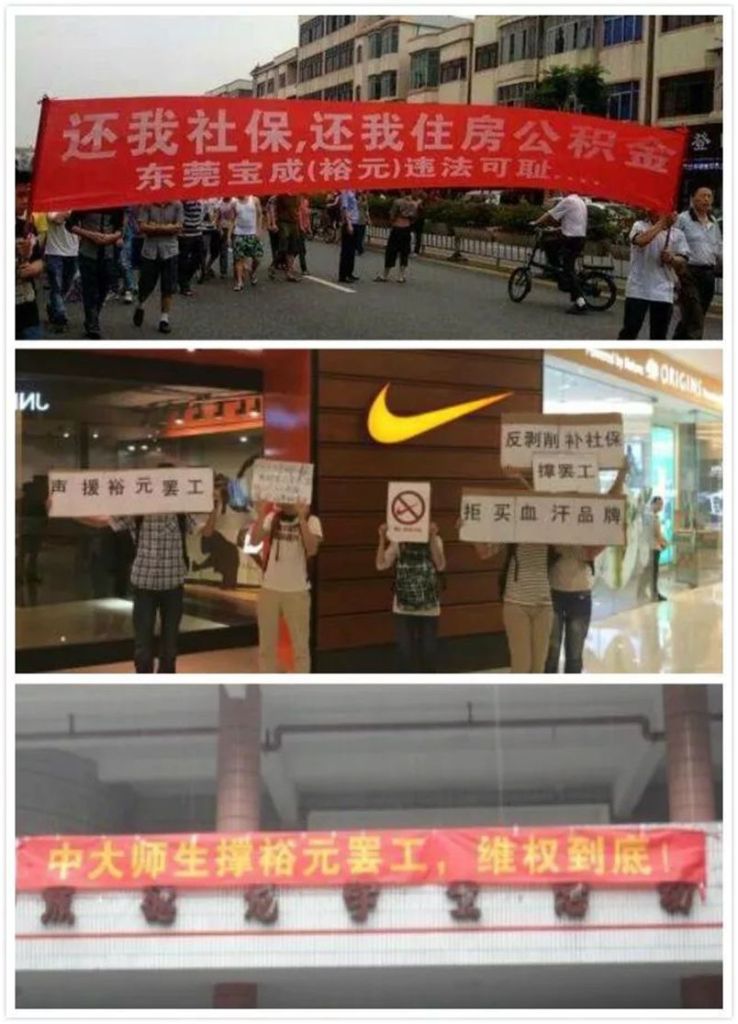
Workers holding banner protesting Yue Yuen’s failure to contribute to the mandatory Housing Providence Fund; protest in support of workers in front of Nike store, a major Yue Yuen customer; Sun Yat-Sen University students holding banner “Teachers and Students of Sun Yat-sen University support Yue Yuen workers’ strike, fight until the end!”
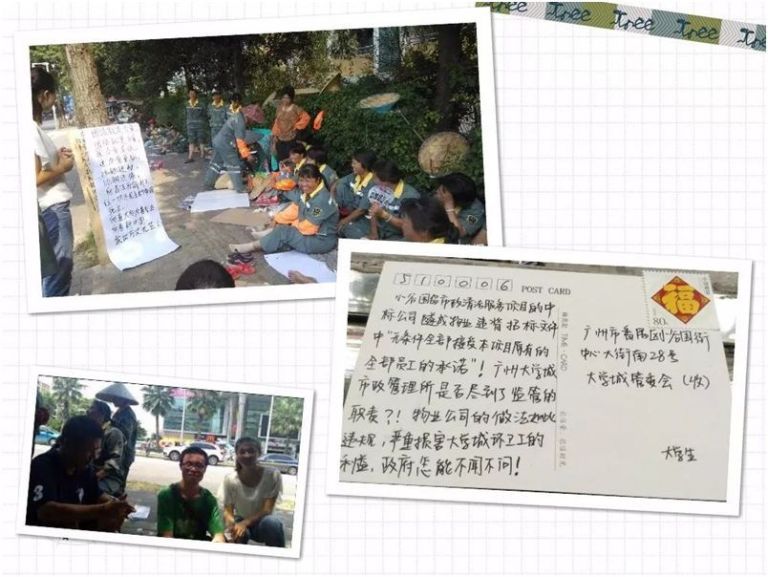
Mengyu accompanying striking sanitation workers
I was angry and shocked! Why was the law so ineffective? Why were workers who had devoted their youth and their whole lives (to economic development) left without support in their old age?
Faced with that cruel and bloody reality, I realized the powerlessness of the law. Workers, born poor, had no way out of dying poor.
In the summer of 2014, Guangzhou Higher Education Mega Center sanitation workers went on strike to defend their rights. At the site of the struggle, workers told us about the dishonesty and shamelessness of the property management company. They deducted workers’ wages and benefits, withheld workers’ social security and housing providence fund payments, forced workers to sign blank contracts, and tried to evade the legally mandated severance compensation they owed to workers. Worker representatives demanding a response from the company received threats instead, while company management put on arrogant airs of “that’s right, we’re bullying you.”
In response to all kinds of unfair treatment towards the sanitation workers, the labor department and local government paid no attention, acting as if it had nothing to do with them. Righteous students fought and shouted out for workers. They learned from and were moved by workers’ strong solidarity and fighting spirit. Twenty days later, through collaboration between students and workers, the strike finally succeeded.
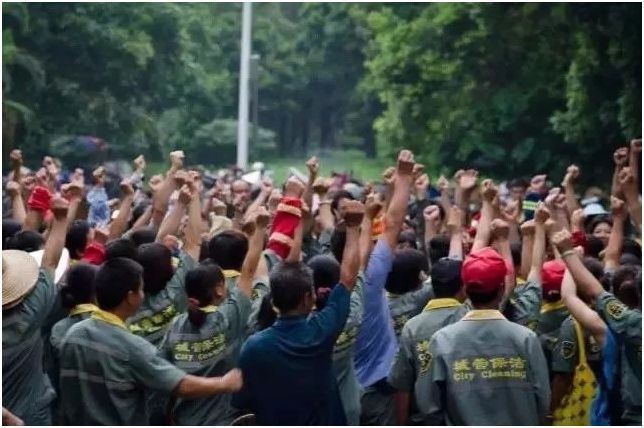
This kind of victory brought workers both dignity and rights, and also opened my eyes to a new kind of possibility.
Hard-working laborers should not be subjected to crude and violent treatment. I decided I had to stay with workers long term, to find a way to recover the dignity and rights they have lost.
The woman worker in the auto parts factory
In order to continue to stand with workers, I decided to become one.
After graduation, I came to the Guangzhou Economic and Technological Development Zone. This is an area where you can only get jobs through job agencies. To get a job, you have to first pay a fee to the agency. The agencies always first paint the companies in flying colors, but after collecting their fees, leave the applicants out to dry, telling them the companies right now aren’t hiring. After being tricked by two job agencies, I finally landed a job at Japanese auto parts factory NHK Spring Precision and became a proper woman worker.
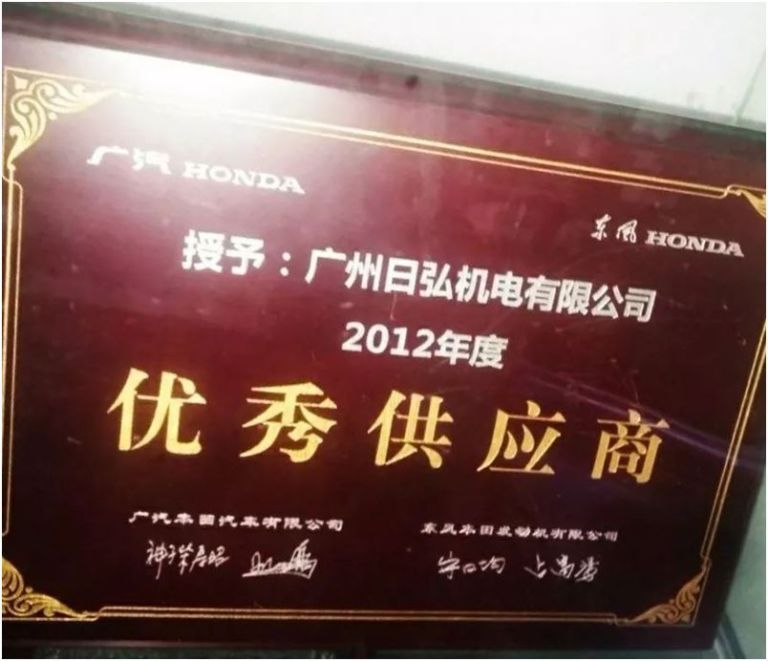
Honda’s Excellent Supplier Award, awarded to NHK Spring Precision
NHK primarily produces springs used in Dongfeng-Honda, Guangqi-Honda and Nissan’s engine and transmission production. After a brief training, I entered the workshop for the first time. The noise of the machines hurt my eardrums and the smell of grease assaulted me. Metallic dust filled the air. Workers were engaged in tense activity at work benches worn to a shiny finish. Signs warning of benzene and other chemicals were disturbing to see. Workers wore disposable masks incapable of effectively filtering out dust or poisonous gases, while some worked without any mask at all.
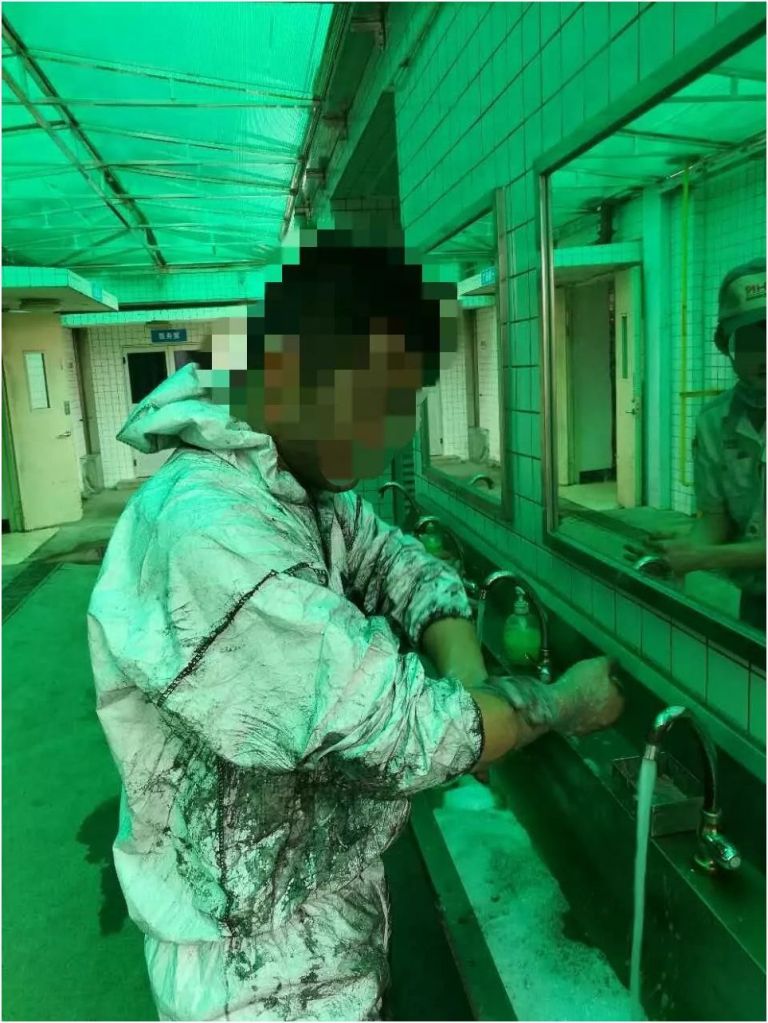
After climbing into a machine to clean it, a worker is covered in dust.
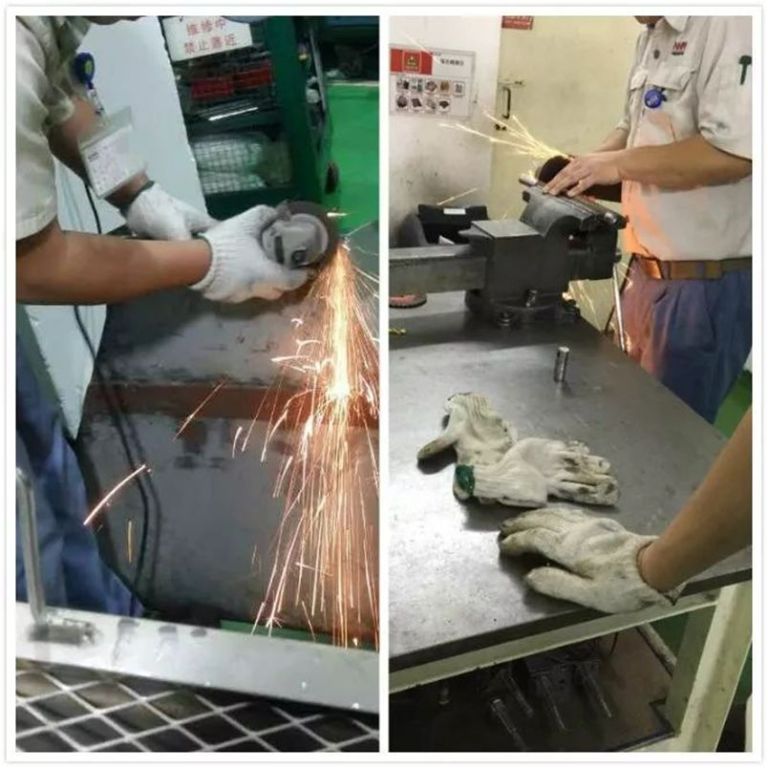
Sweat mixed with metallic dust leaves stains that can’t be washed out
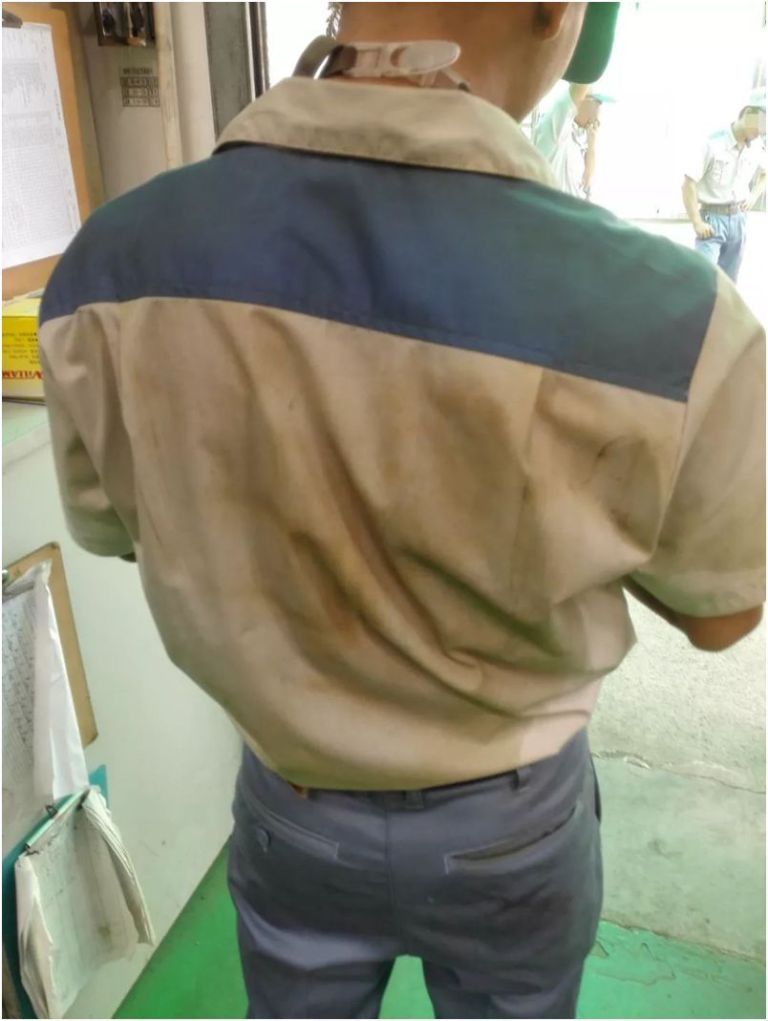
Sparks fly, without protection
This is what the ‘well-paid’ auto-parts factory looks like! Workers make a so-called “good wage” in exchange for their health.
After working for some time, I learned that many of my co-workers had developed rhinitis, bronchitis, or hearing loss or experienced white blood cell decline because of working long term in these conditions.
It’s hot in the workshop year-round, and by May the heat is hard to bear. In the height of summer, temperatures over 35 degrees Celcius are normal. In some parts of the factory, the temperature even reaches 50 degrees. Given the intensity of the labor on top of the heat, even a thin mask makes it hard to breathe. A thicker mask would be absolutely suffocating.
Given the choice between their health and their jobs, workers chose their jobs. This kind of choiceless choice that is the daily reality for myself and my co-workers.
Because our base wage is too low, given the choice between resting on the weekends and not having any rest days, we choose to forgo our rest days!
Because reporting a work injury means annual bonus deductions, given the choice between claiming our rights and receiving our full bonuses, we choose not to report our work injuries!
Because managers wield control over our annual appraisals, when we hesitate over whether to buy the overpriced underwear the manager is selling, we have no choice but to buy!
In the face of manager’s willful scolding and personal humiliation, given the choice between fighting back or compromising, we choose to silently take the humiliation!
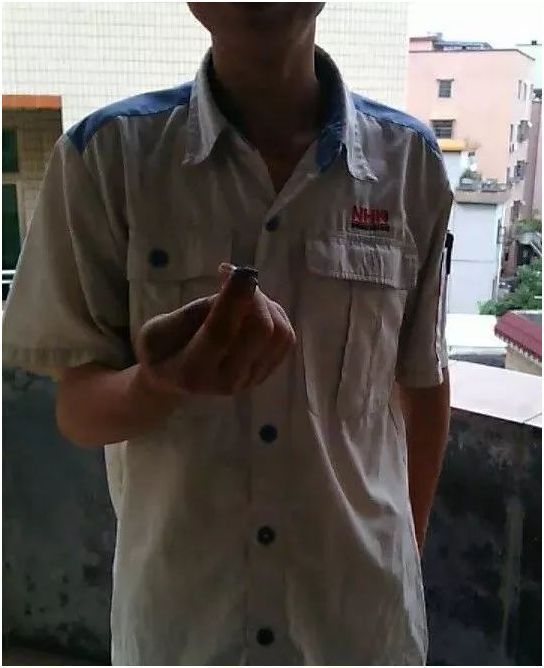
A worker’s finger was crushed, but the choice to report the injury would mean major deductions from the worker’s annual bonus.
What’s even more painful to watch is the way the factory treats pregnant women. Being pregnant means that you have to work even harder, because managers use the excuse of pregnant workers not being able to meet production quotas to scold them and deny them overtime. In order to meet quotas, pregnant women give up their legally mandated rest time.
The harsh work environment and continuously rising production quotas mean pregnant women suffer a lot day to day. On the production floor, women who manage to keep working while pregnant are very rare. The intensity of production is one reason, while the harm that the (poisonous) production environment can do to a child is another reason.
While she was working at NHK, my friend Xiaomei miscarried every time. This nightmare ended only after she left the factory. Another co-worker, learning from Xiaomei’s experience, left the factory as soon as she learned she was pregnant, but miscarried nevertheless. The harm caused by (NHK’s) work environment is engraved in the child’s bones from the start.
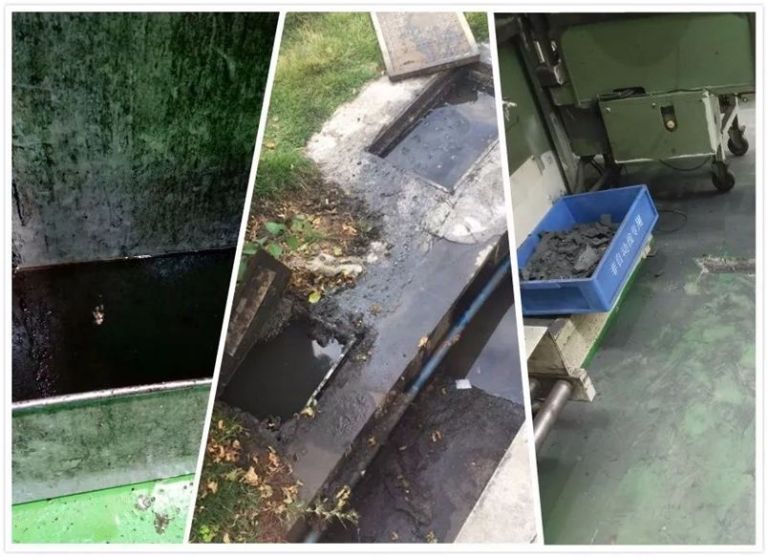
Oil and dust are everywhere in the factory
And then there are those older workers who gave their whole youth to the company, from their muddle-headed twenty year-old years into their stable adulthood. For over a decade, managers were forever behind them, wielding a stopwatch—a movement per second, faster, faster, and faster. Meanwhile, three hours into the nightshift, because of a lack of raw materials, at a single command workers end their shift.(1)
In order to fulfill production needs, our night shift was suddenly rotated to the middle shift, and the middle shift suddenly rotated to morning shift. In two continuous days we got less than ten hours of sleep! This muddled sleep schedule and tense work routine leaves one both unable to sleep well and unable to muster energy. That pain affects our every hour and minute.
My friend Old Wang told me he had considered leaving innumerable times, leaving this completely inhumane management system and horrendous work environment. But in over a decade of work, he has gained nothing but a worn down body. He doesn’t know where he would go if he left the factory, and as the main breadwinner for the family, he can’t afford to stop working.
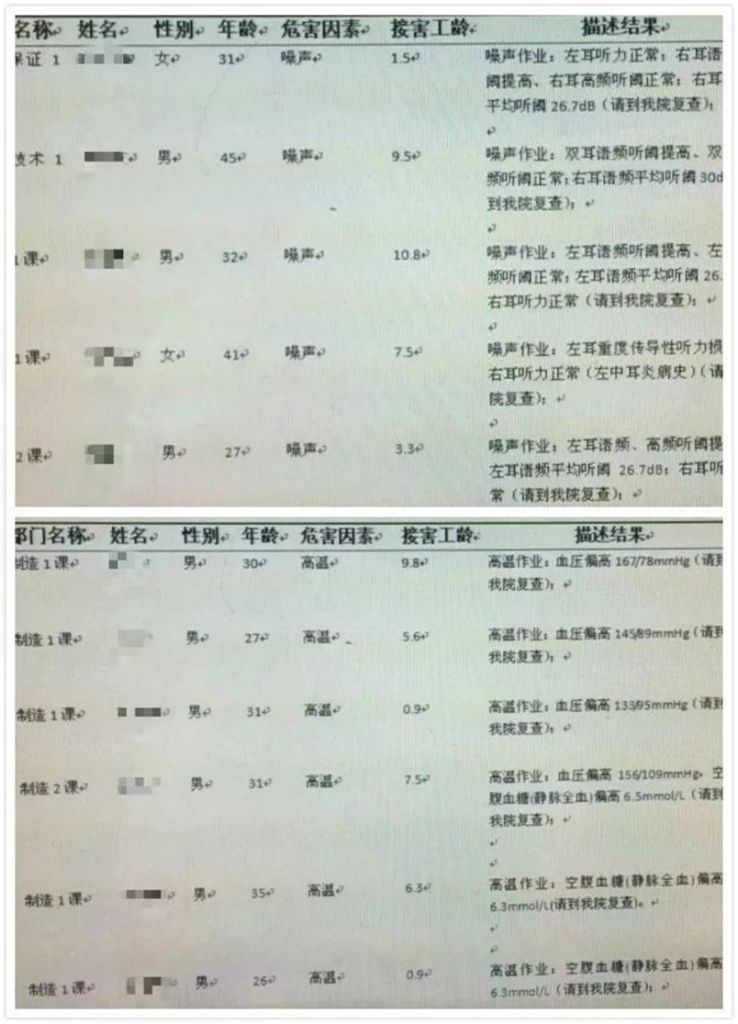
Workers’ medical check-up results show that many of them have hearing loss and hypertension after working in the factory’s noisy environment and extremely high temperatures for years.
No length of service can stop the company’s spurning of workers. In the eyes of the company, a worker is worth less than a machine. When a machine is broken they conduct repair and maintenance. But when a worker’s health collapses, they merely deny responsibility and sweep workers out the door.
In this place, we are
machines operating 24/7
switches to be pressed
figures flashing on a billboard
We are
bank accounts saving up our parents’ old age medical fees
tears rolling down our children’s faces
We are also
deformed spines, strained muscles, deafened ears
But we are never
human beings
able to feel justice and freedom
Our days and nights are turned topsy-turvy, in exchange for the machine’s 24-hour roar!
We don’t sleep or rest, in exchange for the boss’ unearned wealth!
We endure contempt and insults, in exchange for these parasites’ ridicule!
We work tirelessly, but never do we get in return our respect or rights!
A friend once said, complaining is meaningless, if you just put it aside, you’ll live a happier life. There’ll be many more days like this to endure. I believe they’re right, but I just can’t help writing down these “meaningless” words in the dark of the night. These are my everyday as a worker, and the everyday of thousands and thousands of workers. Men, women, those who love laughing, fat people, anemic people, those who have worked a full fifteen years, those who have worked more than two years but still not gained a proper contract, those whose fingers have been broken, those who have miscarried…
Until one day, we can’t work any longer, and the traces of our working days are erased, and a younger generation replaces us in repeating this monotonous daily routine.
Fighting for change
But, I can’t just stop at complaining!
Here we have sadness, anger, and the pain of losing our dignity and rights.
Here we have longing, hope, the spirit of finding cheer amidst bitterness, and the sweat and effort of working hard.
Here we need change! Here we long for change!
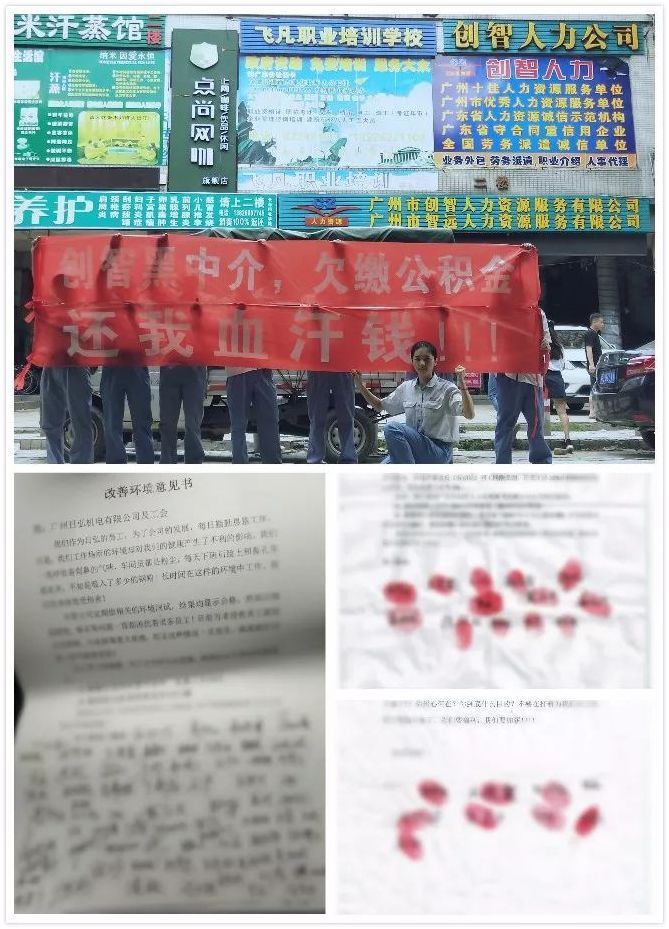
Workers demand improved working conditions and the making up of their mandatory housing providence fund payments.
In late March 2018, the annual wage and bonus collective bargaining session began. In the past, workers’ bargaining representatives were basically appointed by the union chair. But this year, workers decided to utilize their right to democratic participation. They nominated me as bargaining representative candidate.
The process of becoming a bargaining representative was extremely tough, as the factory and union found a thousand ways to make trouble for me. They have always liked obedient puppets, and are innately hostile to bottom-up worker nominations.
After much difficulty becoming a representative, and with the trust and support of fellow workers, I prepared a questionnaire to collect opinions of workers. The manager immediately criticized me for provoking workers’ expectations for salary increases. The union leader warned me to ‘know my place’. I was told I had already harmed the interest of upper management, and that I was young and brash, reckless and extreme, not mature enough…
… all of this simply because I carried out the first steps of my legal responsibility as a worker representative!
With sadness and anger, I want to know, what in the eyes of the union and the company is not “extreme” behavior?
Not extreme is obeying the union leaders’ orders to not use a survey to collect workers opinions!
Not extreme is to not question the company’s threats and insults to workers, or its blatant manipulation of the collective bargaining process!
Not extreme is to tolerate the company’s illegal warning and punishment of workers on false charges!
Not extreme is to recognize the validity of the union committee’s overreach of powers in withdrawing my bargaining representative status!
If that is the case, this time I choose to be “extreme”, I choose to break the chains binding workers!
These leaders so used to violating the law saw me as a great enemy, and thus launched at me a series of accusations including manipulating the election, (acting as an) overseas (infiltrating) force, and leaking corporate secrets. My right to overtime was withheld, I was banned from working alongside frontline workers, they tried to slander, vilify, threaten and scare me… they came up with all kinds of base methods! But they had only one goal, to suppress me, and scare all the other workers.

Documents and materials released by the company to take revenge against Mengyu.
As the for law, it’s not even a prop in the company’s eyes; merely a bunch of scrap paper to be tossed, or poisonous gases and dirty water to be discharged. The 107 punitive measures in the Employee Handbook are the kind of law they want.
In the early morning of May 28, 2018, the union committee called a secret meeting. They bypassed the general union representative meeting and withdrew my worker representative status. At 1pm in the afternoon, the company gave me a demerit on charges of opposing my superiors and disrupting factory order. At 4pm, the company unilaterally announced my dismissal.
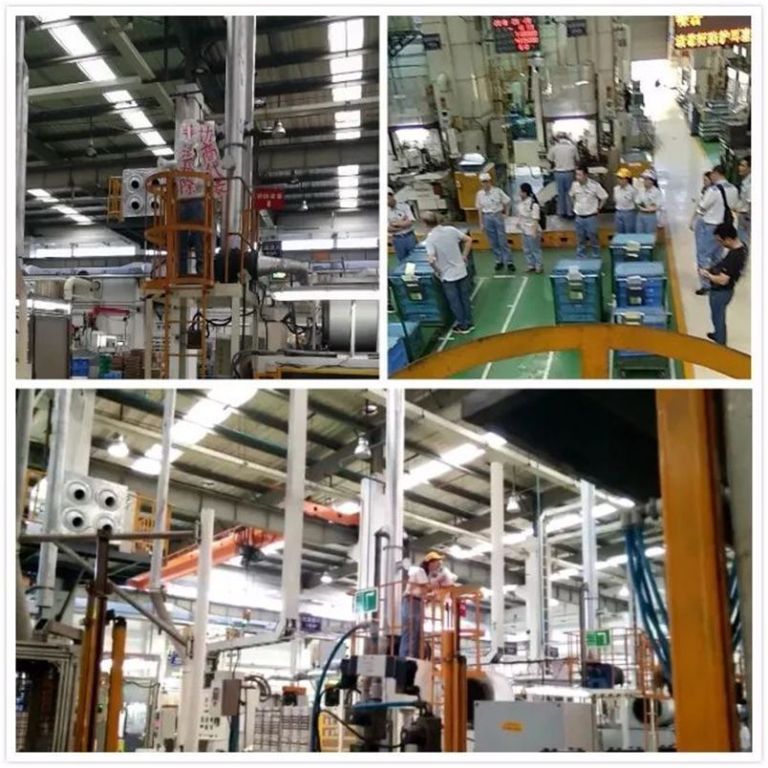
With red stamps and savage smiles, the union colludes with the company, promising absolute control over workers.
The term “sweatshop” has long been familiar. After forty years of reform and opening, sweatshops use workers lives to build themselves into the mirror of law-governed China, where its demon’s are reflected. What of worker’s self-governance, democracy, freedom, equality and fairness… the more beautiful (the image) the more ugly (the reflection)!
To me, the end of my term as an NHK employee is not the end. The gate of the factory is now closed to me, but its steel beams will always bear the impression of its shameless illegal firing of workers. Closed outside this door there is not only myself, but all those who dared to speak up before and all those who will someday dare to fight for their rights after.
Those workers who have woken up from their nightmares are not willing to go back. Those who are used to earning their living standing won’t like having to earn it on their knees.
From student to worker, from regular worker to worker representative, I am more and more firm in my conviction to stand with workers!
(We must) do solid work, continue to move forward, and reach towards our rights and respect. (We must) work for workers, and fight for change!
This is my choice, and will be the choice of many more people after me.
(1) Ending the shift at three hours means only three hours of pay, and rescheduling of the other hours, meaning an unpredictable schedule for workers.
Reposted from Red Balloon Solidarity: http://redballoonsolidarity.org/3104/

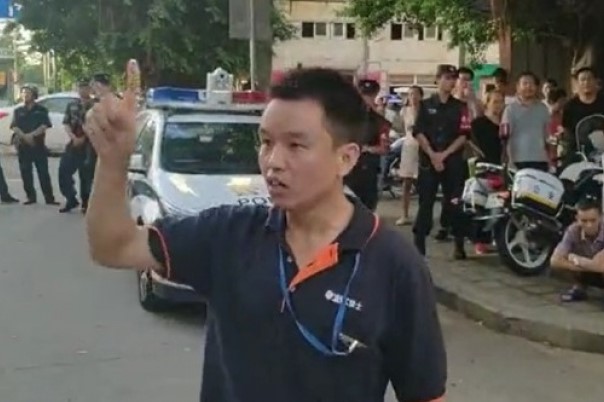 Mi Jiuping
Mi Jiuping